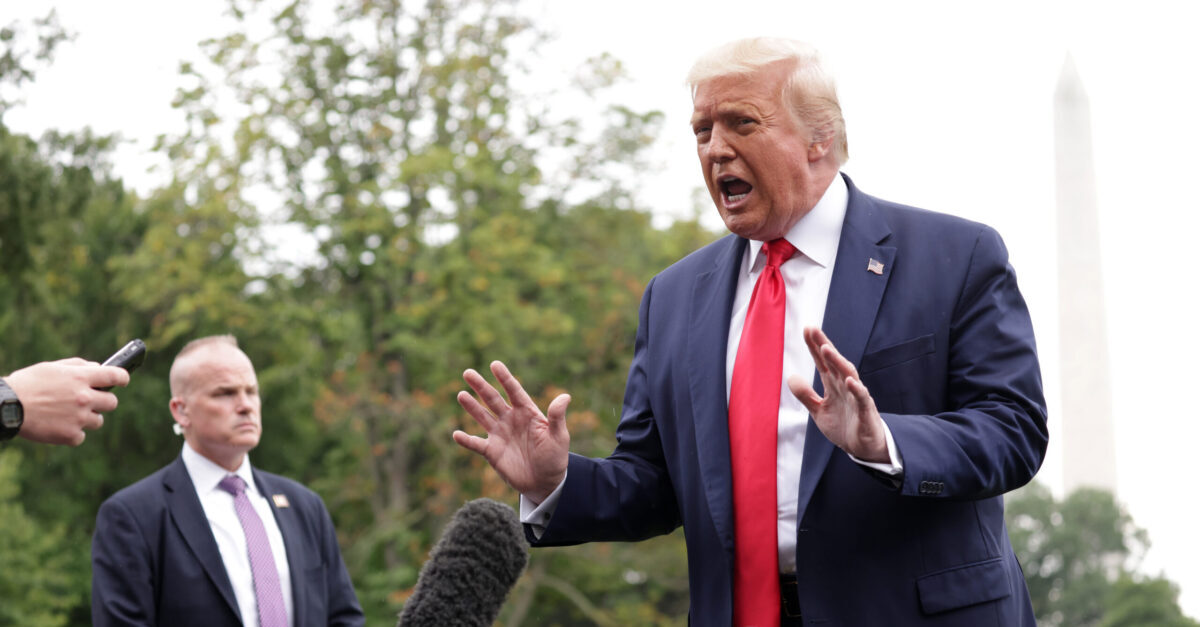
A federal judge has granted the State of New York a significant win in a lawsuit against the Trump Administration’s Department of Labor. The litigation surrounded the federal Families First Coronavirus Response Act. The Act “entitles employees who are unable to work due to COVID-19’s myriad effects to federally subsidized paid leave,” Judge J. Paul Oetken, an Obama nominee to the bench in the Southern District of New York, noted in the opening sentences of a 26-page opinion.
New York argued that the U.S. Department of Labor’s interpretation of the COVID-19 legislation ultimately made it harder for affected workers to receive the benefits Congress intended. (In the judge’s words, the federal DOL rule “would dramatically narrow the pool of employees entitled to leave as compared to New York’s preferred interpretation.”)
The Department of Labor’s interpretation of the federal COVID-19 legislation basically barred employees from receiving benefits if their employer “d[id] not have work” for them to do (e.g., because the employer lost business or revenue because of the virus). In the DOL’s view, even if an employee was suffering a direct effect of the virus (as laid out in the statute), the true cause of the employee’s hardship might perhaps be the virus’s effects on the employer’s business. Or, as the court summarized, “the employee’s qualifying condition would not be a but-for cause of their inability to work, but rather merely one of multiple sufficient causes.” And, if that was the case, the employee might not be eligible for assistance.
New York’s interpretation of the legislation was that the employer’s ability to assign work to the employee — the “work-availability requirement” — was only marginally (if at all) relevant, since — as the judge noted — the legislation “grant[ed] the employers a corresponding, offsetting tax credit” which ultimately “subsidizes these benefits, though the employers front the costs.”
To fight back against the New York lawsuit, the Department of Labor first tried to claim New York did not have standing to sue because it was not sufficiently affected by a rule aimed at workers. Oetken got around that by noting that the DOL rule would affect New York’s tax revenue base.
On the merits, the judge ruled that the original statute was ambiguous but that the DOL’s interpretation of it was out of line: “the agency’s barebones explanation for the work-availability requirement is patently deficient. The requirement, as an exercise of the agency’s delegated authority, is an enormously consequential determination that may considerably narrow the statute’s potential scope.”
The judge accused the DOL of engaging in a “terse, circular regurgitation” of the congressional legislation requirements which did “not pass [a] minimal requirement of reasoned decision-making” under administrative procedure law.
In other words, the judge ruled, an employee may have a bona fide reason for COVID-19 leave (and benefits) which were separate from the employer’s business needs. Here’s the judge’s analogy:
An employee may need leave (i.e., an agreed-upon and permitted absence from work) tethered to one reason even if her employer has no present work for her due to some other reason. For example, in ordinary usage, a teacher on paid parental leave may still be considered on “leave” even if school is called off for a snow day.
In conclusion, the Judge Oetken went somewhat soft on the DOL, but still said its thought process was mostly wrong:
The Court acknowledges that DOL labored under considerable pressure in promulgating the Final Rule. This extraordinary crisis has required public and private entities alike to act decisively and swiftly in the face of massive uncertainty, and often with grave consequence. But as much as this moment calls for flexibility and ingenuity, it also calls for renewed attention to the guardrails of our government. Here, DOL jumped the rail.
The judge rejected DOL’s motion to dismiss.
Oetken’s opinion began by quoting Supreme Court Justice John Roberts to underscore the deadliness of the virus, to remind people that the virus spreads through those who do not have symptoms, and to note that the contagion has no known cure. In what could be interpreted as a polite slam against those who are not taking the virus seriously, Oetken also noted that “social-distancing measures have been taken nationwide, by state and local governments and by civil society, to stem the spread of the virus.”
The opinion also contains analyses of other highly technical questions within the statute. Read it below:
NY v Department of Labor (COVID-19 legislation) by Law&Crime on Scribd
[Image via Alex Wong/Getty Images]